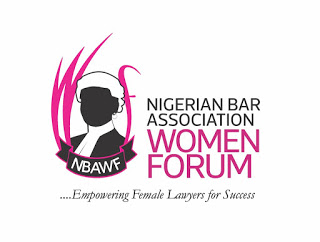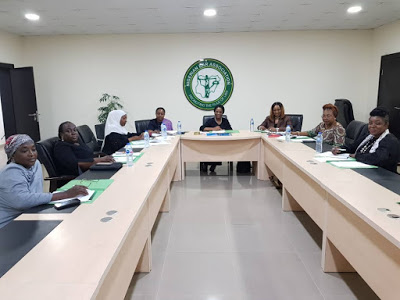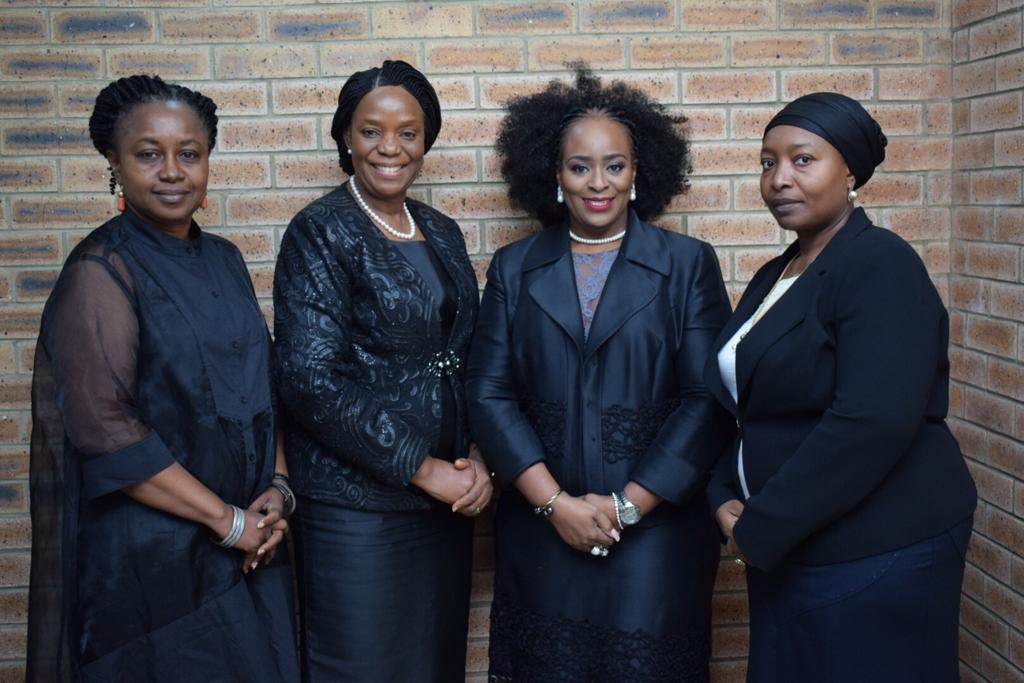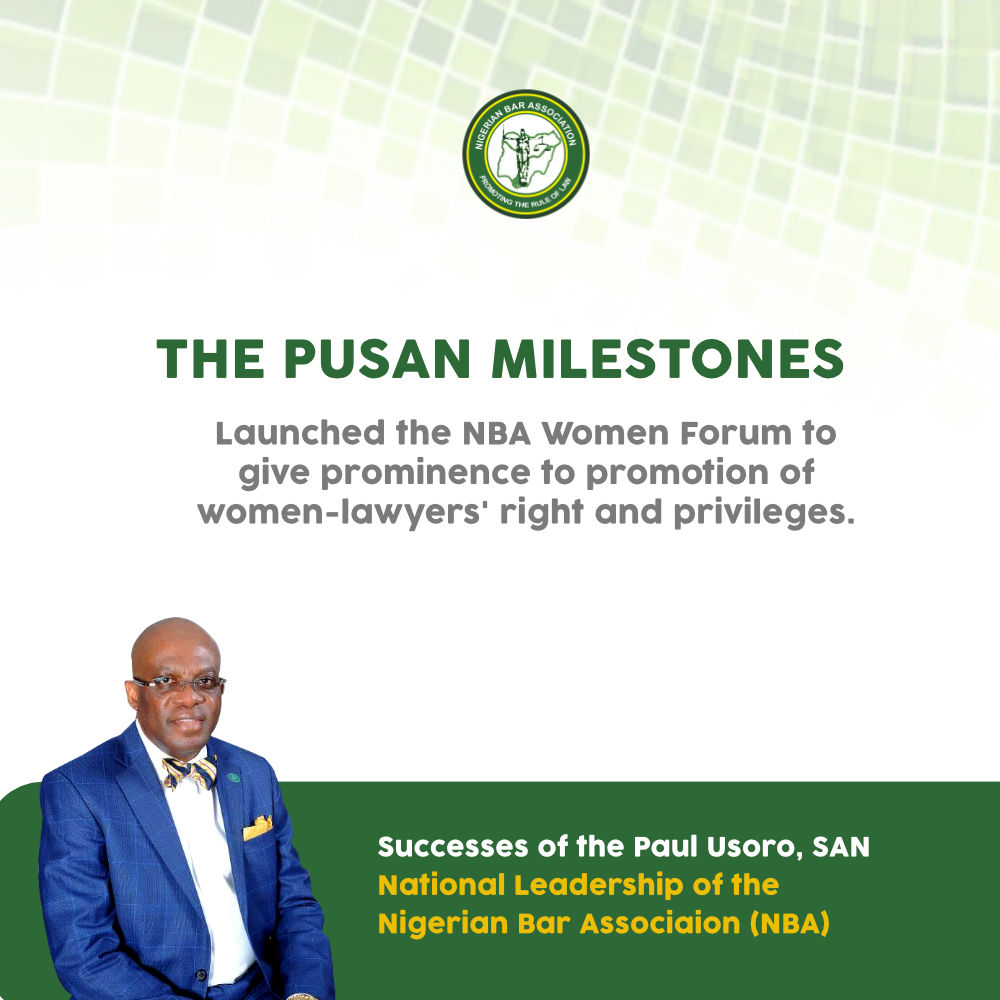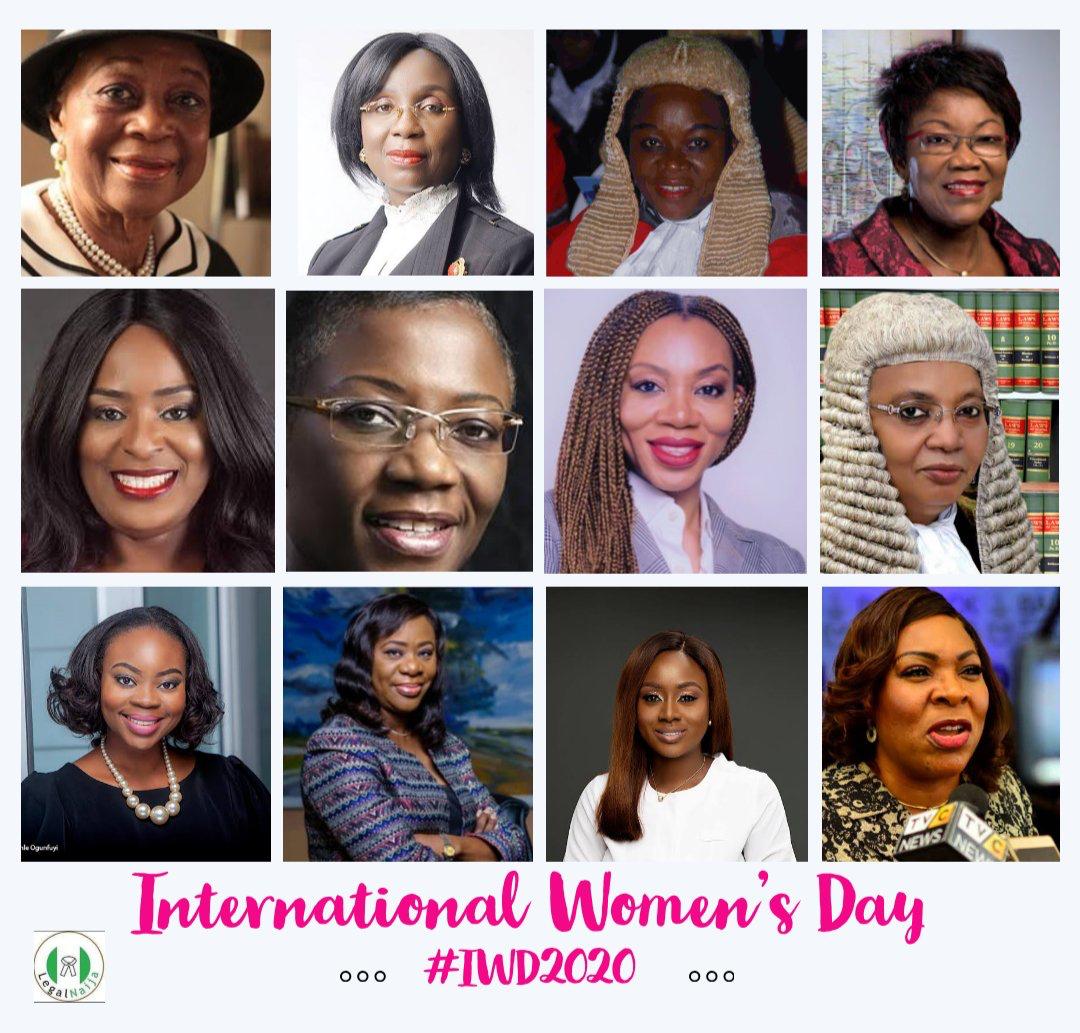
Effects of Corona Virus on Global Taxation | Kofoworola Omowale Q.

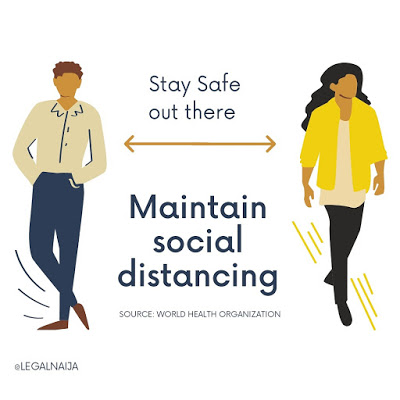



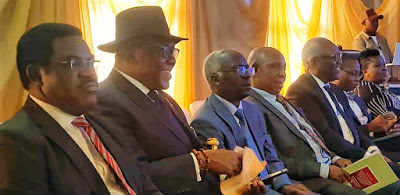

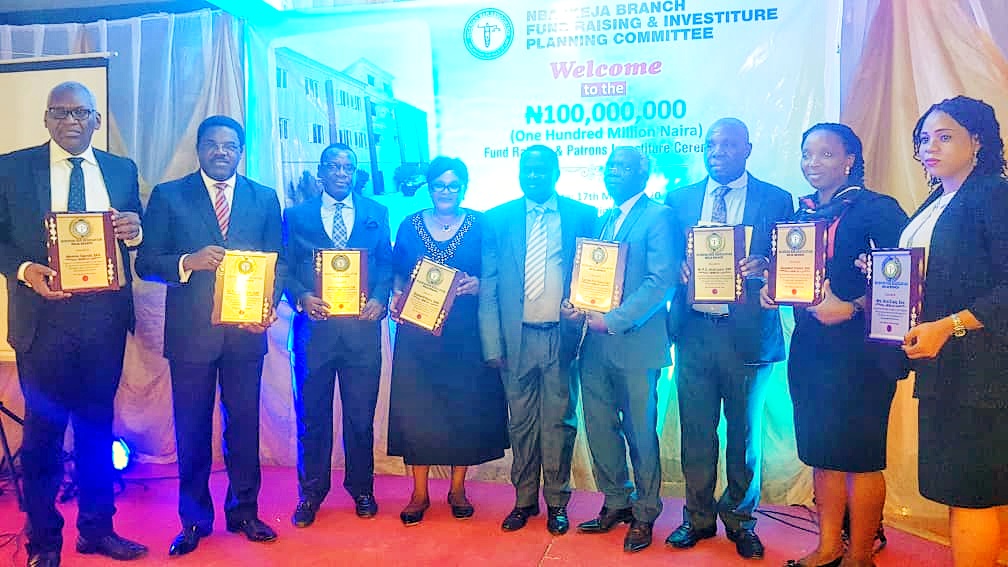
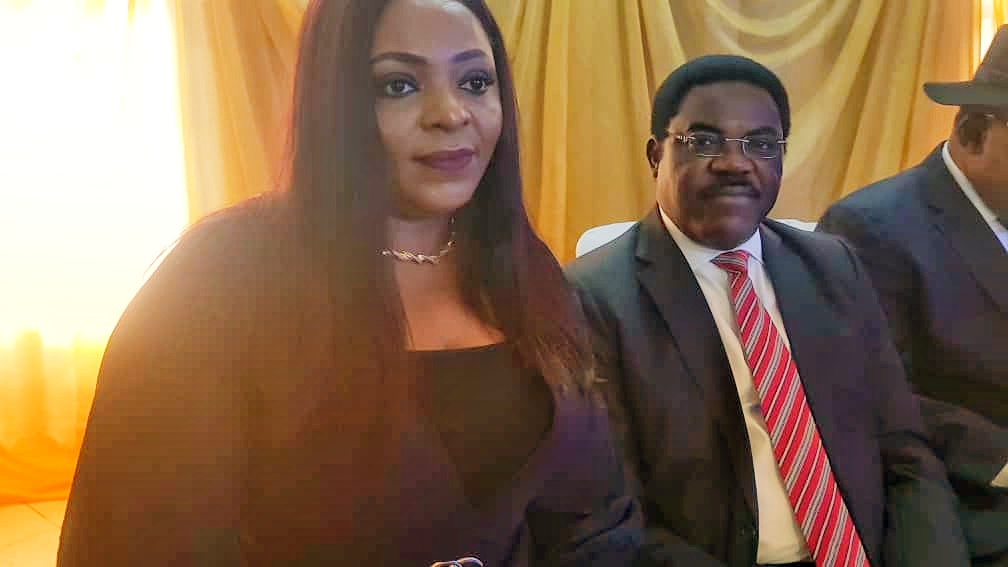
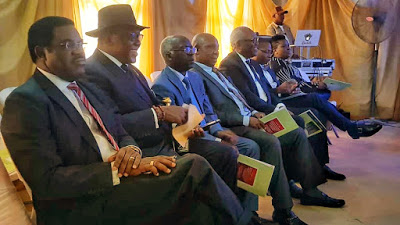
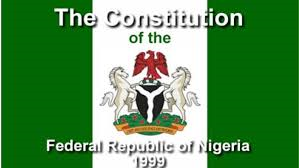

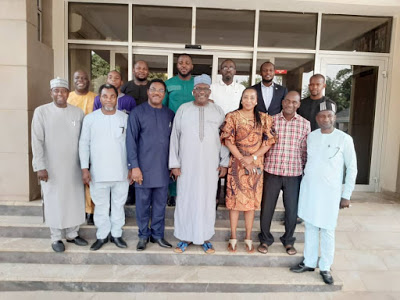

Former Chairman of the Nigerian Bar Association (NBA) Section on Public interest and Development Law ( SPIDEL) Chief Joe Kyari Gadzama SAN, last today in Abuja described Mr. Dele Adesina SAN as unbeatable in terms of his leadership capacity at the Bar.
Chief Gadzama stated this while receiving Mr. Adesina and his team who paid him a courtesy call at the J-K Gadzama Court in Abuja. He said “In terms of capacity in the present context you are unbeatable. But what is the assurance that the process will be transparent and the results of the exercise will reflect the votes and will of the people.
“You were the General Secretary of the NBA when I was chairman of Abuja branch and your record of achievements are there for all to see”.
Chief Gadzama also said: “I believe in the regional groups, I am a trustee of the Arewa Lawyers Forum and therefore cannot go against the decision of Egbe Amofin and their candidate. When you stepped down for Mr. Oluwarotimi Akeredolu SAN in 2008, some of us were not happy with you.
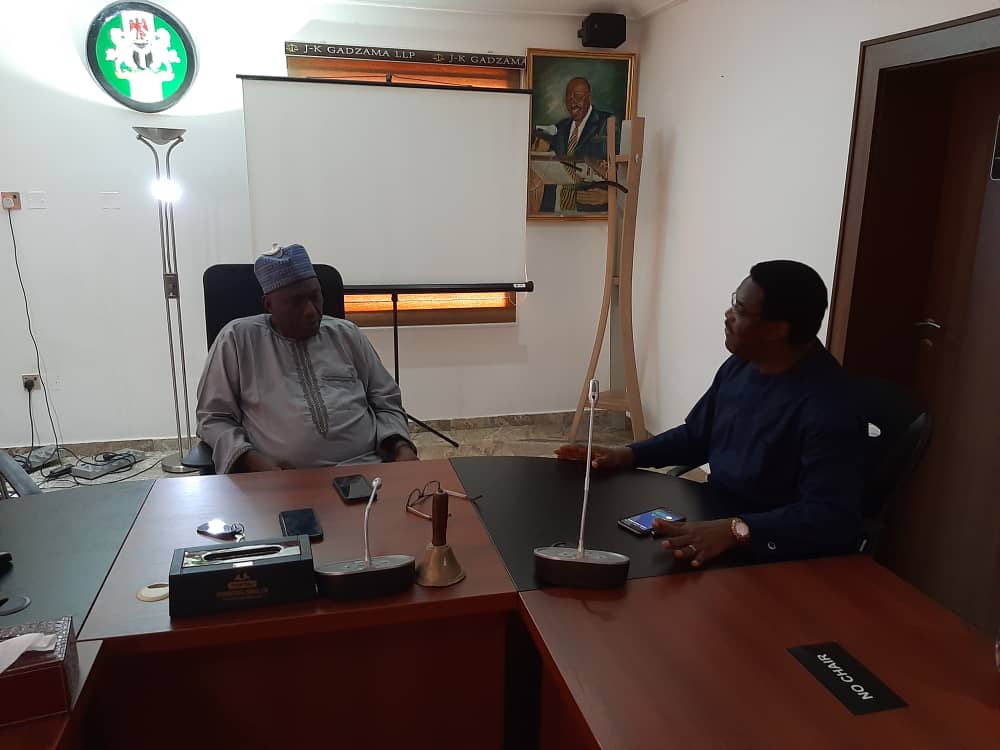
In his response, a Partner in J-K Gadzama LLP, Mr. Mohammed Mongono said: “Be rest assured that you have no problem with me and those who will listen to me. Others may come but one is matured to take his own position, so feel free to visit us any time. Mongono also stated that nobody has the institutional memory more than Mr. Adesina and therefore he has all their support. He complained that nobody was appointed into the Electoral Committee of the NBA from Maiduguri, Biu and Damaturu branches of the NBA
and that as a former chairman of Maiduguri Branch, he was disappointed at this and does not know what they have done to deserve this.
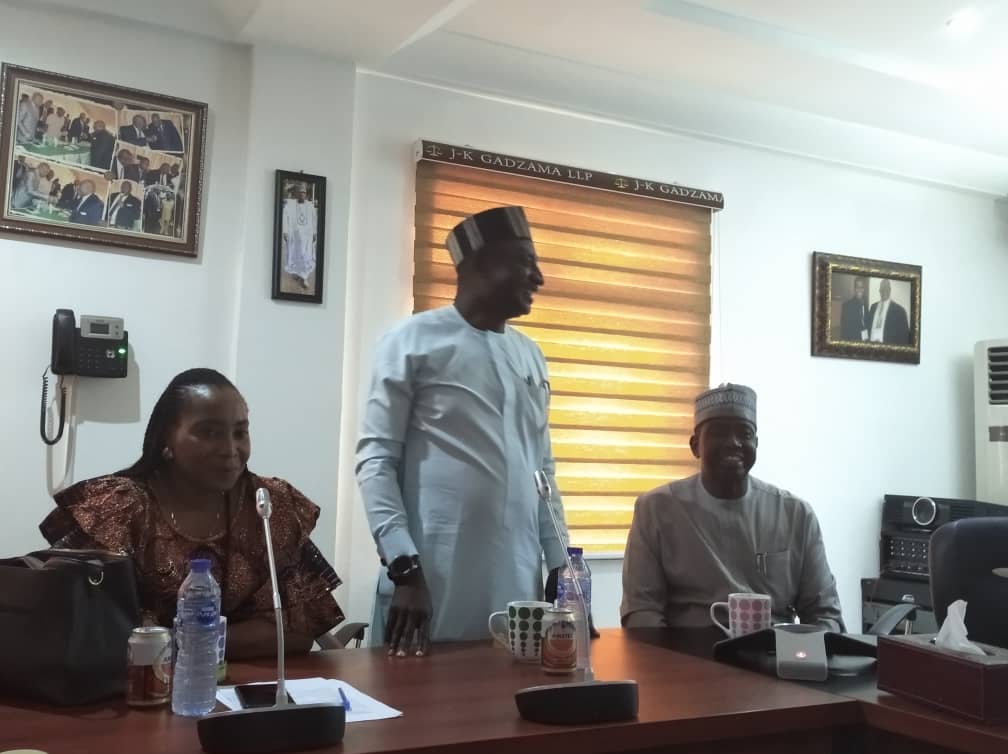


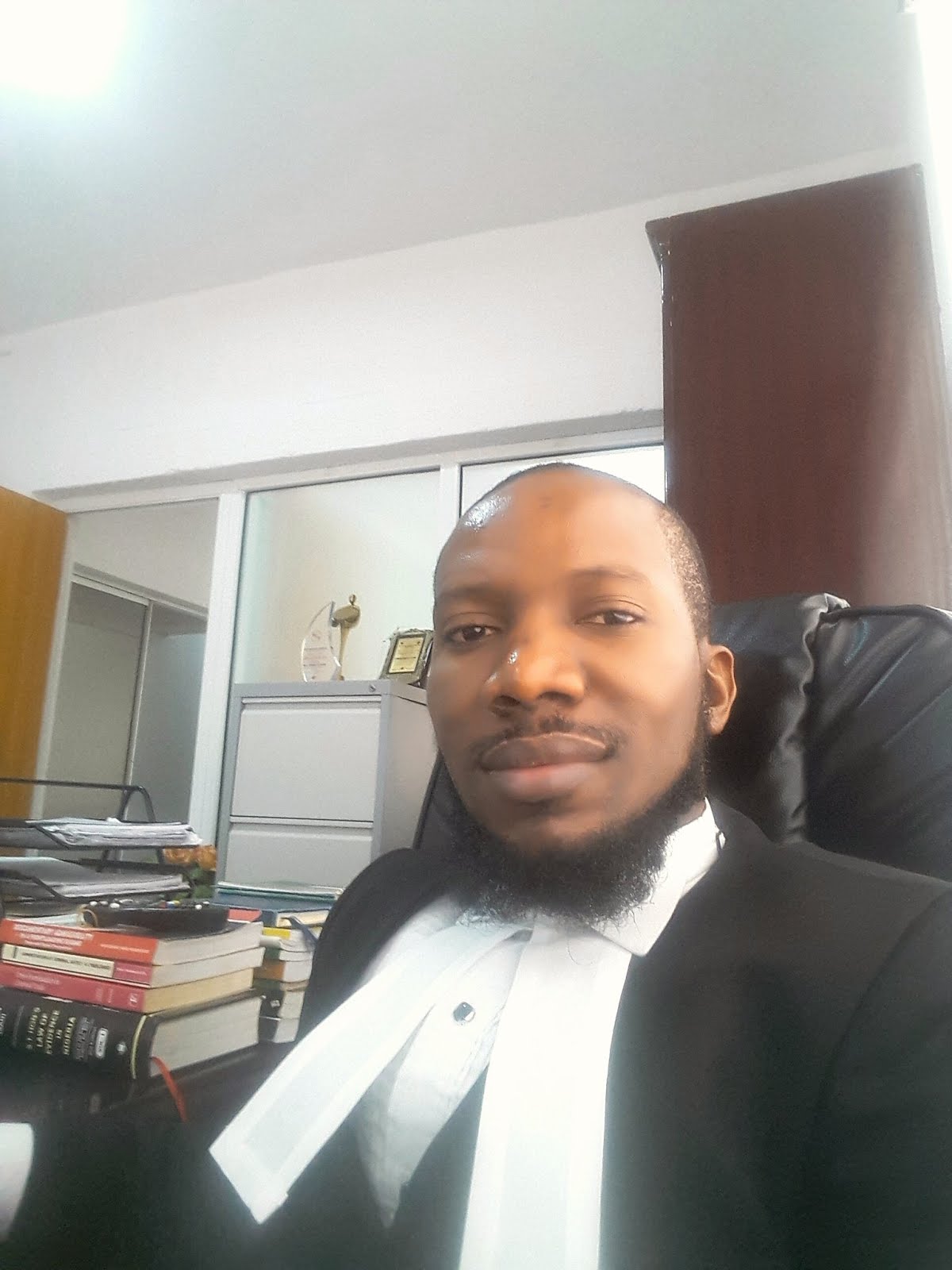

Challenges Inauguration of NDDC Advisory Committee without Board.
Lagos-based lawyer and human rights activist, Mr. Inibehe Effiong, has dragged President Buhari, the Attorney General of the Federation, Abubakar Malami SAN and the National Assembly before the Federal High Court in Abuja over the President’s ‘illegal’ submission of the 2019 and 2020 budget estimates of the Niger Delta Development Commission (NNDC) to the National Assembly without and in the absence of the Governing Board of the NDDC.
The case which was filed on Wednesday, 11th March, 2020 with Suit No: FHC/ABJ/CS/349/2020 also has the Minister of Niger Delta Affairs, Godswill Akpabio, the NDDC and the Ag. Managing Director and head of the Interim Management Committee of the NDDC, Prof. Kemebradikumo Daniel Pondei, as 4th, 5th and 6th Defendants, respectively.
Effiong in his Originating Summons asked the court to determine the following four questions:
“Whether by the provisions of Section 18 (1) of the Niger Delta Development Commission (Establishment etc.) Act, 2000, the President of the Federal Republic of Nigeria can validly submit estimates of expenditure and income (budget estimates) of the Niger Delta Development Commission to the National Assembly without and/or in the absence of the governing Board of the Commission.”
“Whether the 2019 and 2020 estimates of expenditure (budget estimates) of the Niger Delta Development Commission is not ultra vires, illegal, invalid, null and void having been submitted to the National Assembly by the President without and/or in the absence of the governing Board of the Niger Delta Development Commission in view of the express provisions of Section 18 (1) of the Niger Delta Development Commission (Establishment etc.), 2000.”
“Whether the Interim Management Committee appointed by the President of the Federal Republic of Nigeria to manage and supervise the affairs of the Nigeria Delta Development Commission, can legally exercise the power exclusively vested in the governing Board of the Commission, including entering into contracts and expenditure of the funds of the Commission, in view of the express provisions of Sections 8 and 14 (3) of the Niger Delta Development Commission (Establishment etc.), 2000.”
“Whether the existence and inauguration of the governing Board of the Niger Delta Development Commission is a condition precedent to the inauguration of the Niger Delta Development Advisory Committee; a body statutorily charged with the responsibility of advising the governing Board and monitoring the activities of the Commission in view of the provisions of Section 11 (2) of the Niger Delta Development Commission (Establishment, etc.) Act 2000.”
In his 40 paragraphs affidavit with 8 exhibits attached, Effiong stated that he is from the Niger Delta Region. He sated that President Buhari dissolved the extant Board of the NDDC headed by Senator Victor Ndoma-Egba in January 2019 and appointed an Interim Management Body to manage the affairs of the NDDC. He stated that Buhari in October 2019 wrote to the Senate seeking the confirmation of a new 16 member governing Board which has Dr. Pius Odubu from Edo State as chairman which was approved by the Senate.
Effiong deposed that despite the approval of the governing Board by the Senate, Buhari unilaterally suspended the inauguration of the Board and continued to retain the Interim Management Committee now head by Professor Pondei.
According to the activist, Buhari on the 26th November, 2019 submitted the 2019 and 2020 budget estimates of the NDDC to both Houses of the National Assembly without and/or in the absence of the Governing Board of the NDDC which attracted condemnation from the National Assembly, and that the Senate during its Plenary on Tuesday, 26th November, 2019 passed a resolution directing its Committee on Niger Delta Affairs not to recognize the Interim Management Committee but to relate only with the approved governing Board of the Commission when considering the budgets.
“Following the condemnation of the President’s submission of the said budget estimates without and/or in the absence of the governing Board of the NDDC by the National Assembly and the resolution of the Senate, the President by a letter dated 23rd December, 2019 formally notified the Senate of his decision to “put on hold” the governing Board appointment confirmed by the Senate “to allow the Interim Management Committee to manage the Commission pending the outcome of the Forensic Audit.” Effiong said.
According to the lawyer, in contravention of the earlier Senate resolution, the Senate Committee on Niger Delta Affairs recognized the Interim Management Committee while considering the 2019 budget of the NDDC on the 12th February, 2020 and allowed the said Interim Management Committee to defend the 2019 budget and that on Wednesday, 4th March, 2020 and Thursday, 5th March, 2020 the House of Representatives and the Senate respectively considered and passed the 2019 budget estimates of the NDDC without and/or in the absence of the governing Board of the Commission.
He also deposed that the National Assembly is currently considering the 2020 budget estimates of the NDDC without and/or in the absence of the governing Board.
Effiong also complained that on 10th March, 2020, President Buhari constituted and inaugurated the Niger Delta Development Advisory Committee at the Council Chamber, State House, Abuja, consisting of the nine Governors of the Niger Delta States and other persons appointed by the President without and/or in the absent of a governing Board for the Niger Delta Development Commission.
In his written address, the Lagos lawyer argued that the power to submit estimates of the expenditure and income of the Commission is statutorily vested in the Governing Board of the NDDC and not the president. He contended that the role of the President is that of agency; in the sense that the President merely acts as the courier of the Governing Board. The President, he argued, cannot perform his role under Section 18 (1) of the Act without and in the absence of the Governing Board. He said that a contrary interpretation will do direct violence to the spirit and letters of the NDDC Act.
Effiong further argued that “only the Governing Board of the Commission can exercise the power exclusively vested in it by the NDDC Act. There is no part of the said Act that empowers the President to put the existence of the Governing Board “on hold” and arrogate the statutory power of the Governing Board to an Interim Management Committee. The Interim Management Committee led by the 6th Defendant is an aberration and has no statutory backing”
On the inauguration of the Niger Delta Development Advisory Committee, Effiong submitted that “the existence of the Governing Board of the Commission is a condition precedent to the constitution of the Niger-Delta Development Advisory Committee. This is only logical since the advisory committee is required to advise the Governing Board. It is therefore my respectful contention that the inauguration of the Advisory Committee by the President is premature and against the due process of law and the intendment of the NDDC Act without and/or in the absence of the governing Board.” He argued.
Effiong prayed the court to declare that the President cannot validly submit the budget estimates of the NDDC to the National Assembly without and/or in the absence of the governing Board of the Commission. He therefore asked the court to set aside the 2019 and 2020 budget estimates of the NDDC submitted to the National Assembly by Buhari.
He also prayed for an order of injunction restraining the Interim Management Committee from exercising the power of the Board. Finally, he asked that the court should declare that the inauguration of the NDDC Advisory Committee was premature and against the due process of law.
Effiong told the court that “the Defendants should not be given a free hand to run the country amok without recourse to the dictates of the law. That will only lead to one result – anarchy. This Court has a sacred duty to halt descent into anarchy and uphold the rule of law. It is only by so doing that the future of Nigeria as a democratic country can be guaranteed.”
No date has been assigned for the hearing of the case.
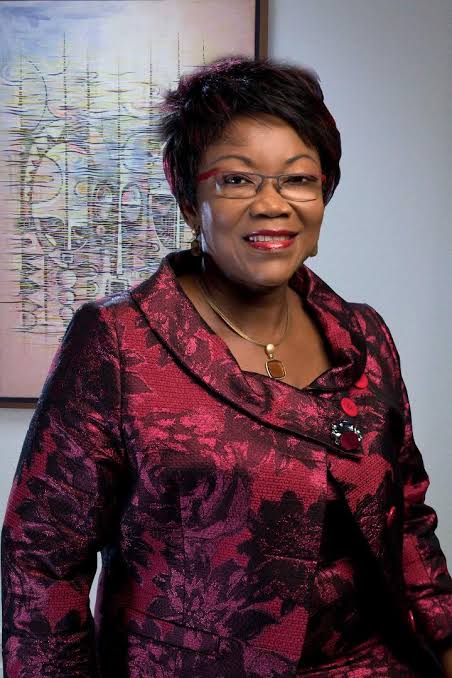

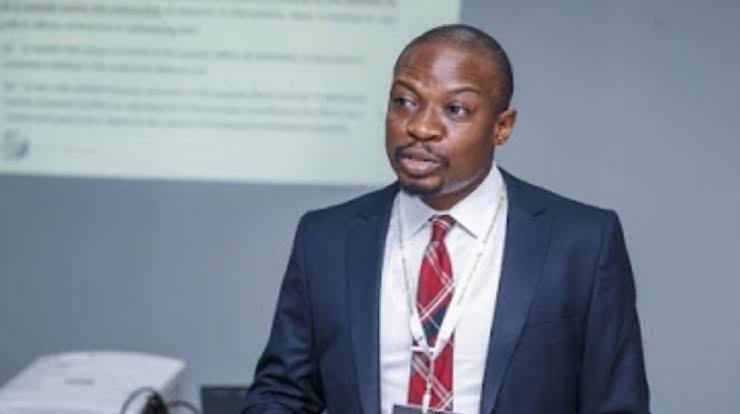

From time immemorial, whenever an employee moves to a new employment, it had been a standard practice for employers of labour to give employment/work reference to the prospective employers of such former employees.
The contents of such references varied on case-by-case basis and in most cases, the employees subject matter of the references had little or no knowledge of same and consequently had no control over the transferor or the recipient of such information which may make or mar them in their career pursuit.
With the global prominence of data protection laws and regulations came the need to now interrogate what used to be the routine practice of further processing employees’ personal data without their informed and express consent and thereby violating their rights to privacy in the process except certain other validating factors exist.
A lot has been said and written about employers’ (as data controllers and/or administrators) obligations to their staff under the Nigeria Data Protection Regulation but it must be emphasized that such duties do not end upon cessation of master/servant relationship but endures for as long as the servant’s record are retained by the master, hence accentuating the importance of making and updating employees’ data-retention policies by employers of labour. That is not however the focus of this intervention.
Can employers lawfully send their ex-employee’s references without their informed consent?
By virtue of Article 2.2 of the NDPR, personal data can only be lawfully processed where:
a) Data subject has given consent for specific purposes;
b) Necessary for performance of contract;
c) Necessary for compliance with legal obligation;
d) Necessary to protect vital interest of data subject;
e) Necessary to perform task in public interest
Now, we will consider all the indices of lawful processing of data to ascertain whether or not sending of references falls under any of them while bearing in mind the meaning of employee references (according to https://www.inc.com/encyclopedia/employee-references.html) thus:
“Employee references are the positive or negative comments about an employee’s job performance provided to a prospective employer. In most cases, a prospective employer will contact a person’s current or former employer to seek references as part of the process of considering that person for a new position. Prospective employers check references during the interview process in order to ensure that a candidate’s assertions about his or her job skills and work experience are accurate. In fact, obtaining references is one of the most important parts of the hiring process because it can provide valuable information that sets one candidate apart from others and facilitates a sound hiring decision.”
On Employee’s consent and necessity of processing for performance of contract
Experience has shown that the data subject is seldom or never aware of the request for his employment reference proceeding from his current employer to the former employer, hence an employee’s consent is hardly sought and/or obtained before the exchange of such pleasantries between his past and prospective employers.
Assuming the employee’s consent is even sought and obtained, it is our modest opinion that such cannot constitute valid consent since it couldn’t have been freely given, knowing fully well that his chances of securing the new job may be dependent on favourable reference from his ex-employer, hence such consent is induced especially since the employee may not know the contents.
The provision of article 2.3(ii)(d) of the NDPR is instructive in this respect thus:
“Data Controller is under obligation to ensure that consent of a Data Subject has been obtained without fraud, coercion or undue influence; accordingly:
……
d) when assessing whether consent is freely given, utmost account shall be taken of whether, the performance of a contract, including the provision of a service, is conditional on consent to the processing of personal data that is not necessary (or excessive) for the performance of that contract.” (Emphasis mine)
From the foregoing provision, it is our considered opinion that: (a.) The status and bargaining power of an employer (past or present) constitutes undue influence on an employee to give consent for the processing of his personal data in order to secure another employment and (b.) Most employment offers/contracts are made subject to references from past employers which, in our humble opinion, is not necessary for the performance of the subsequent contract except in cases of crime or other vices.
Necessary for legal obligation
A legal obligation has been defined as any obligation from time to time created by any enactment or authority. The Labour Act, Cap 198, Laws of the Federation 1990 (LA) is the principal law regulating labour relations in Nigeria but out of its 92 sections none is expressly dedicated to employer’s obligation to provide work reference or work certificate.
Sections 7, 8 and 9 of the LA expressly list matters that must be contained in an employment contract but the obligation to provide employment/work reference is conspicuously absent and thereby activating the canon of interpretation of ejusdem generis rule to dislodge any suggestion that employment reference is contemplated by the relevant sections. See Federal Republic of Nigeria v Ibori (2014) LPELR- 23214 (CA).
From the foregoing, we again, modestly conclude that, under the extant LA, an employer does not have any legal obligation to give employees reference/work certificate with or without request.
Public Interest
Employment contracts are, by their nature, private agreements with the exception of employments with statutory flavour, which are arguably public matters, since the government is the employer and wages are paid from public funds.
The Nigerian Supreme Court in Centre for Pollution Watch v. NNPC (2019) 5 NWLR (Pt. 1666) 518 @ 583, defined the term “public interest” as:
“…the general welfare of the public that warrants recognition and protection of something in which the public as a whole has a stake especially, an interest that justifies government regulation.”
Admittedly, although the public is interested in how public funds are spent, this writer modestly thinks, positing that employment reference is a matter of public interest is, drawing the principle too far, except always, such employee’s subsequent employment constitutes grave danger to the state as a whole.
From the apex court’s definition above, can one now say that a civil servant’s employment reference concerns the general welfare of the public that warrants recognition and protection simplicita? I humbly, think not!
Vital interest of the employee
Although vital interest is not specifically defined under the definition article of the NDPR, an inference can be drawn as to its meaning from article 2.12(f) thus:
“The transfer is necessary in order to protect the vital interests of the data subject or of other persons, where the data subject is physically or legally incapable of giving consent; provided, in all circumstances, that the data subject has been manifestly made to understand through clear warnings of the specific principle(s) of data protection that are likely to be violated in the event of transfer to a third country…”
(Emphasis mine)
Indubitably, good references are in the interest of an employee, but the NDPR is clear that, processing such without consent can only be lawful where done in the data subject’s vital interest and it is our belief, that except of course, where the employee is bedridden and is unable to give consent but that is rarely the case where employers give references without recourse to the employees.
Flowing from the above, this writer opines that, an employer’s provision of employee’s reference to a third party without the employee’s express consent does not fall under processing in the latter’s vital interests contemplated under paragraph d of article 2.2(ii) of NDPR.
Performance of contract
Article 2.2(ii) provides that:
“Without prejudice to the principles set out in this regulation, processing shall be lawful if at least one of the following applies:
……
Processing is necessary for the performance of a contract to which the Data Subject is party or in order to take steps at the request of the Data Subject prior to entering into a contract.” (Emphasis mine)
From the clear provision above, it appears settled that, an employer is at liberty to provide employee’s work reference without the requirement of seeking further consent once such a clause is embodied in their employment contract or any other written agreement between the parties.
The problem that arises here is, where there is no such clause in the employment contract, would such processing still be lawful? This poser seems to have been answered by the National Industrial Court of Nigeria (NICN) in the case of Kelvin Nwaigwe v. Fidelity Bank Plc (unreported Suit No. NICN/LA/85/2014) where Kanyip, J. (as he then was) held that:
“I am persuaded by the force of these UK case law authorities that in appropriate cases there is an implied term in contracts of employment imposing duty on the employer to provide work reference in respect of its employee, whether former or existing. The defendant in the instant case is a Bank and hence a financial institution. This means that the defendant has an obligation to give a work reference to, or in respect of, the claimant, which work reference must be true, accurate, fair and not misleading to a future employer; and I so find and hold. In this respect, relief (c) claimed by the claimant succeeds in terms of the defendant giving a true, accurate, fair and not misleading reference of career record on demand to the claimant.” (Emphasis mine)
Although the decision above was handed down pre-NDPR days, this writer is of the considered view that, the reasoning of the court importing the implied obligation to provide work reference, remains the law in Nigeria until set aside by the appellate court.
Conclusively, as held by the NICN above, in appropriate cases, employers are at liberty to give work reference to their employees’ (past or present) prospective employers without seeking further consent on the strength of the contract of employment pursuant to article 2.2(ii)(b) of the NDPR provided always that the reference must true, accurate, fair data of the employee.
Olumide writes from Lagos, Nigeria and can be reached via olumide@olumidebabalolalp.com


On behalf of myself and colleagues at Dele Adesina LP, I extend my warm regards to the Chairman, Executives and Members of the NBA Badagry Branch (Heritage Bar) as the Branch holds its Annual Law Week from the 9th to the 13th of March, 2020.
With the theme “The State of the Nation and the Nigerian Lawyer” i am sure the deliberations will be rich and focused on the role of lawyers as the custodian of justice, the conscience of the Nation and a bridge between the government and the people.
Please accept our highest regards.
Dele Adesina, SAN
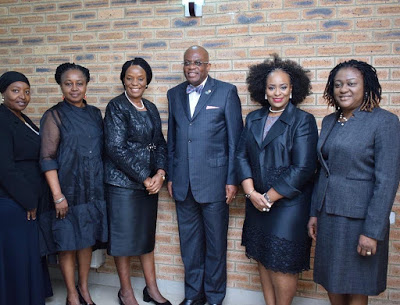

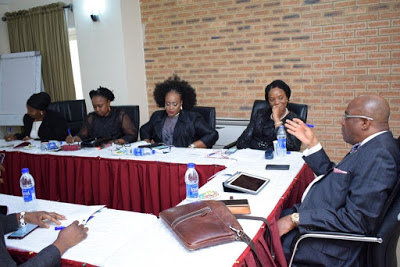
It will be recalled that the Executive Council of the
Women Forum was recently inaugurated by the President of the Nigerian Bar
Association, Paul Usoro SAN on the 17th day of September 2019.
